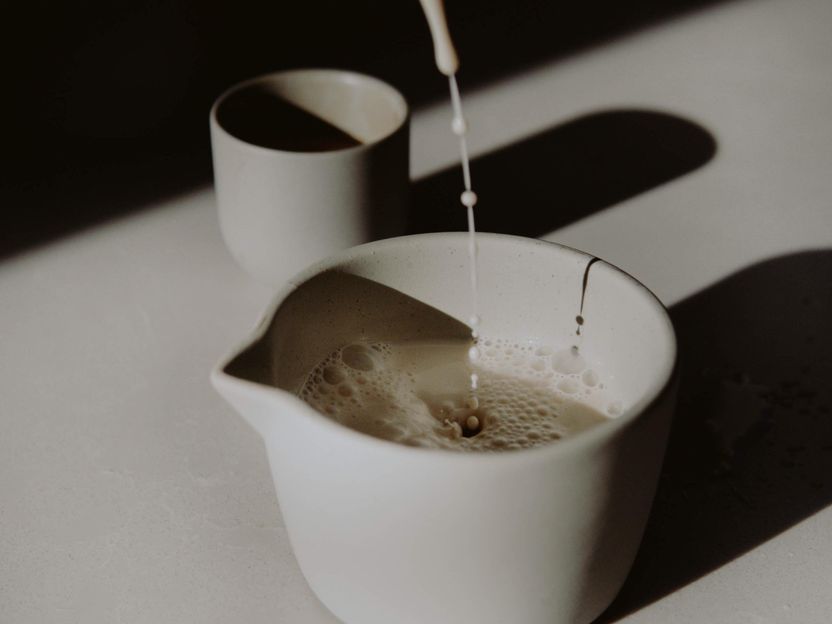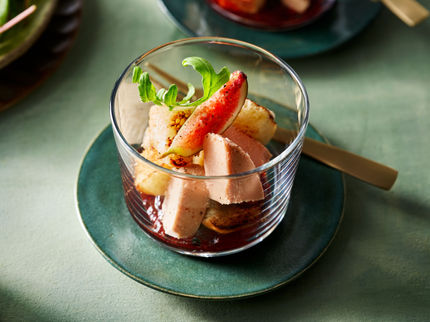Beyond cows: 3 strategies for milk from other animals to compete with cow and plant based diary
While vegan milk, such as oat or soya, dominate the headlines – there are opportunities for non-cow’s milk to compete with traditional dairy products from cows and plant-based milks. Here, we explore three strategies for milk from animals other than cows to appeal to a wider range of consumers.

Photo by Mathilde Langevin on Unsplash
1. Educate to sell better taste and texture
Taste matters! Over a fifth of French consumers aged 16-44 prefer the taste of dairy alternatives to the dairy equivalent. Brands selling milks from animals other than cows have an opportunity to attract more mainstream and younger consumers. Non-cow’s milk brands can convince consumers of better taste, as well as texture than plant-based milks. Education will help sell the taste of non-cow’s milk, especially its unique flavours.
For example, only 10% of dairy launches with other animal milks than cow’s (especially goat milk) make an explicit reference to their creamy/smooth texture.
Ko & Co Soft Camembert Goat Cheese with White Mould: the manufacturer claims that this cheese continues to ripen during its life and undergoes four different flavour stages (Russia).
2. Move from digestibility to other digestive claims
Goat milk products are more likely to make claims about digestibility (than other non-cow’s milks) but non-cow’s milks can move from digestibility to other claims – such as absorption or gut/immune support. Also, non-cow’s milks can sell their different nutritional profiles as more personalised to people’s individual needs.
CPF Pasteurised Goat Milk is high in calcium and phosphorus, is said to support strong bones and teeth, and contains: vitamin B1 to help maintain the nervous system; and vitamin B2 to help convert carbohydrate (Thailand).
3. Use sustainability as a differentiator
There is an opportunity for non-cow’s milks to communicate more extensively on their environmental footprint. In fact, goat farming requires less water and land than cattle farming, and produces less manure, presenting a lower threat to water sources. A small share of non-cow’s milk launches make an environmental claim – compared with plant-based and cow’s milk. Brands should use better environmental credentials to differentiate their products.
Tradi Bergere Organic Ewe’s Milk Yogurt with Honey is made artisanally in the Grands Causses, with fresh milk from the Aveyron and Lozère. The organic product uses packaging from sustainably managed forests and vegetable ink (France).
Future-proofing the dairy industry
As climate change strains ecosystems, the foods of the future – including dairy products – will need to be able to tolerate a range of temperatures, as well soil conditions and other environmental factors.
In this context, milk brands will need to future-proof their products by prioritising the most efficient animal farming based on a given local ecosystem.
Interest in camel milk, for example, is increasing as camels are seen as extremely resilient in harsh climate conditions and have a much superior feeding efficiency than cows while their milk is sought after for its medicinal properties.
Most read news
Other news from the department business & finance

Get the food & beverage industry in your inbox
By submitting this form you agree that LUMITOS AG will send you the newsletter(s) selected above by email. Your data will not be passed on to third parties. Your data will be stored and processed in accordance with our data protection regulations. LUMITOS may contact you by email for the purpose of advertising or market and opinion surveys. You can revoke your consent at any time without giving reasons to LUMITOS AG, Ernst-Augustin-Str. 2, 12489 Berlin, Germany or by e-mail at revoke@lumitos.com with effect for the future. In addition, each email contains a link to unsubscribe from the corresponding newsletter.



























































